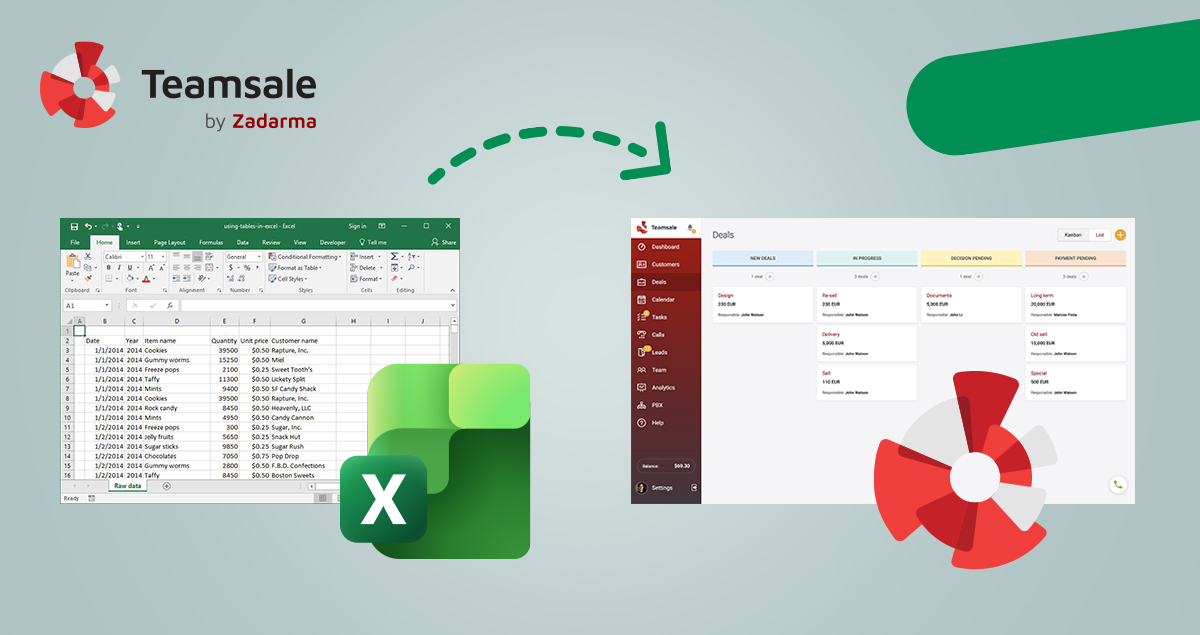CRM systems have a significant impact on sales for small and medium-sized businesses, thanks to the ability to optimize work with customer, increase sales efficiency, and raise product value. In this article, we explain why it's worth implementing a CRM system now
CRM systems have a direct impact on sales due to the structuring and automation of data. They help optimize work processes, increase sales efficiency, and improve product profitability. They change the game by giving a carte blanche to get ahead of competitors who have not yet adopted this system.
How CRM systems are beneficial and why you should integrate them into your business today – read on to find out.
The main advantages of CRM are:
- Easy and convenient communication with the customer.
Storing information about the entire customer lifecycle: from lead to sale. Your employees won’t waste time remembering important facts that play a crucial role in the customer’s decision-making process. This way, you can address the customer's needs before they even express them – all you need to do is analyze the information you already have.
Thanks to the Teamsale CRM and Zapier integration, you can automate the collection and processing of data from Facebook, allowing you to manage leads and customers more efficiently. Capture all important details about the customer, such as their birthday, holiday dates, etc. This will help you choose the right time for a personalized offer, which in turn will increase the chances of a successful sale.
- Sales process optimization.
Automation of workflows frees up time for creativity. You no longer need to remember dates or phone numbers of important contacts—everything you need to do is enter the information into the customer’s profile, set a reminder, or schedule a call. This way, your managers can now focus on other important tasks, such as closing deals or attracting new clients.
- Creating more personalized offers.
Thanks to the sales funnel, you can see at which stage customers most often abandon cooperation, and at which stage sales increase. Equally important, you can segment your customers by service areas, product type, etc., allowing you to make more targeted offers to each one. This approach will inevitably have a positive impact on deal closure, as customers receive exactly what they are looking for.
- Increasing the number of retained customers.
CRM systems improve the customer experience when interacting with the brand. This has a direct impact on customer satisfaction and meeting their needs, which increases the company's profit. Another benefit for the business is the ability to clearly identify the most profitable areas. Thanks to the ability to assign a responsible manager, a call from an important client can be directed immediately to their personal manager.
- Data analysis.
A detailed analysis of the data entered into the CRM will help you identify the best sales channels, methods of implementation, and predict future effective niches. Moreover, thanks to this data, your sales department will be able to learn and offer customers products from their wish list.
- Building internal communication.
CRM will be useful for different types and levels of departments, thanks to access to unified customer information. As a result, it reduces the percentage of conflicts and misunderstandings, as well as increases the speed of information exchange.
- Marketing strategies.
Having more specific information about the customer (beyond their name, gender, and age) will allow you to set up targeting that can help save or even reduce your advertising budget, as well as attract an audience that will truly be interested in your product. This is especially useful for small businesses with a limited budget for advertising campaigns.
For small and medium-sized businesses, implementing a CRM is a strategic decision that helps increase sales efficiency and improve service quality. It allows businesses to remain competitive, build reliable and long-term relationships with customers, and consistently grow sales volumes.



